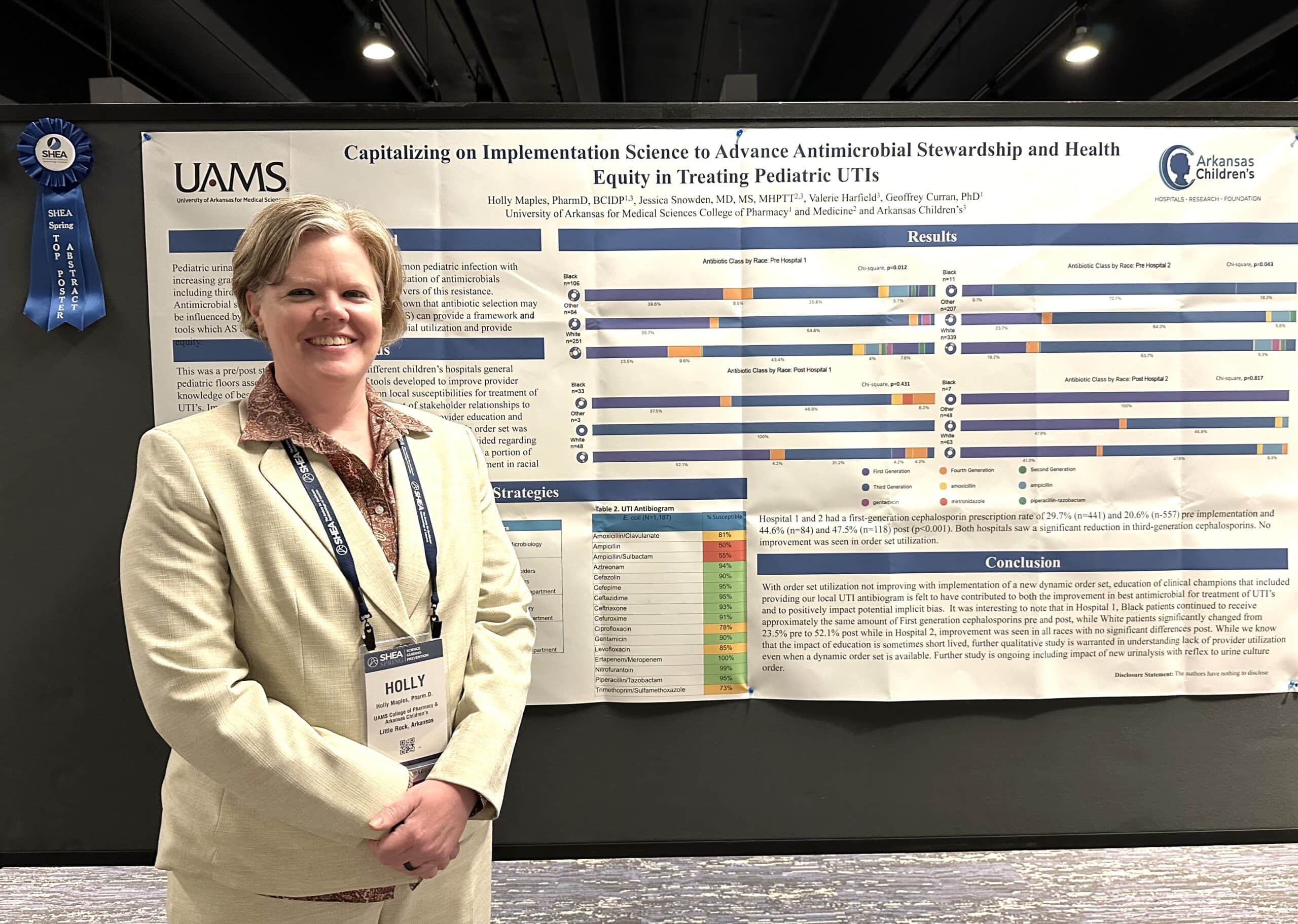UAMS’ Holly Maples, Pharm.D., Recognized by National Society for Effort to Improve Antibiotic Utilization in Pediatric UTIs
| Holly Maples, Pharm.D., an associate professor in the UAMS College of Pharmacy, was recently recognized by the Society for Healthcare Epidemiology of America for having a top featured poster abstract, which she presented at the society’s Spring 2024 Conference.
The recognition stems from her work as a UAMS Translational Research Institute Implementation Science Scholar. The two-year training program provides mentoring and protected time for research and implementing new practice guidelines or other approaches that will improve medical care.
Maples’ poster, one of 21 selected for the April 16-19 conference, is titled, “Capitalizing on Implementation Science to Advance Antimicrobial Stewardship and Health Equity in Treating Pediatric UTIs.”
Pediatric urinary tract infections (UTIs) are the most common pediatric infection with increasing antibiotic resistance. Her implementation science project provided a framework and tools to improve antimicrobial utilization by physicians and to provide equity across races.
Maples, who graduated from the Implementation Science Scholars Program in December 2023, noted in her poster abstract that overutilization of antimicrobials, which include third-generation cephalosporins, are known drivers of antibiotic resistance.
“Antimicrobial stewardship efforts have recently shown that antibiotic selection may be influenced by patient race,” her poster states.
Maples conducted research on the general pediatric floors at two children’s hospitals, assessing the impact of a set of tools developed to improve provider knowledge of best-practice antimicrobials based on local susceptibilities for treatment of UTIs. Implementation strategies included development of stakeholder relationships to co-design a pathway and order set (guidelines to assist a physician or other provider in decision-making). Other strategies included provider education and leveraging of local clinical champions.
“With order set utilization not improving with implementation of a new dynamic order set, education of clinical champions that included providing our local UTI antibiogram (information about the susceptibility of microorganisms to different drugs) is felt to have contributed to both the improvement in best antimicrobial for treatment of UTIs and to positively impact potential implicit bias,” the poster states.
Maples also concluded that additional study is needed to understand why clinicians did not use the order set. Further study is ongoing.
Her mentor and a co-author on the project is Geoffrey Curran, Ph.D., director of the Implementation Science Scholars Program. He is also a professor in the College of Pharmacy Department of Pharmacy Practice and director of the UAMS Center for Implementation Research.
